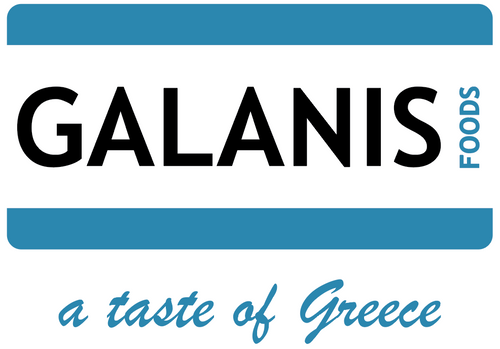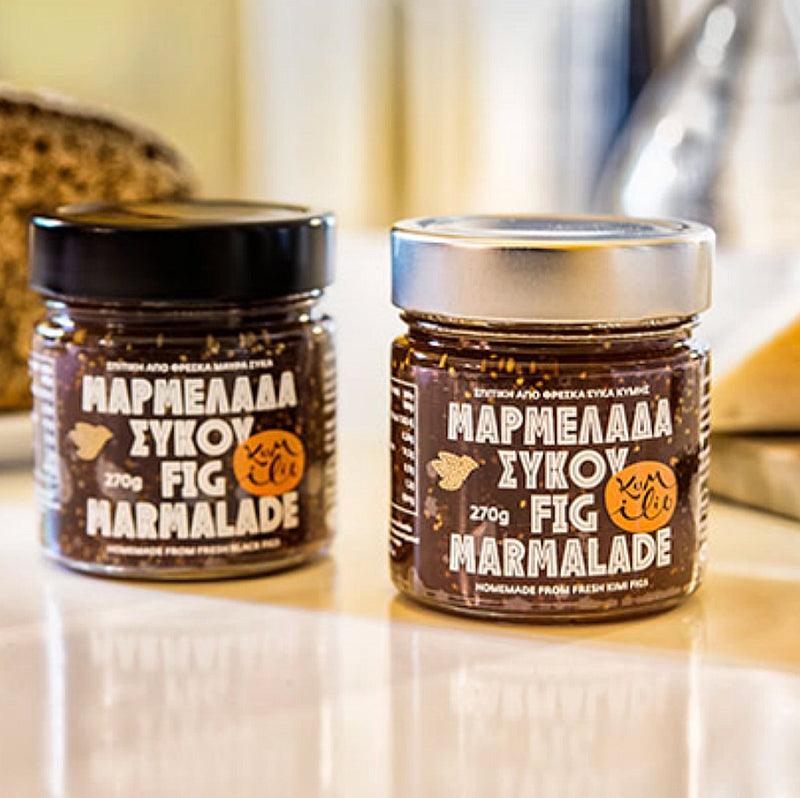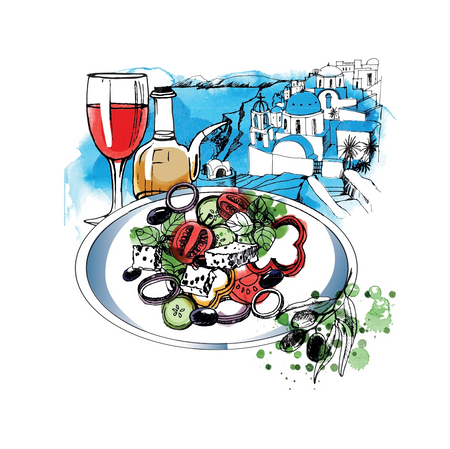When Kostas Lambrou decided seven years ago to join his profession as architect with his passion for making “Kumilιo” preserves, based on figs (figs being one of the world’s best superfoods), he never imagined the success his company would have in different parts of the world. “Architecture and figs are my two great loves and I do not consider these two activities contradictory. Both of them have a reference to the natural environment and the linking of available raw materials to the identity of each site. Furthermore, I had in my mind a ‘return’ and the fig was a very good reason for that. It is a very special natural product, which in my opinion was very undervalued in the market,” he tells NEO.

Raised in Kadi of Kimi, in Evia island, Lambrou was particularly familiar with figs, because his hometown is famous for them – and figs were a staple in the diet of ancient Greeks and like olive and wine, a symbol of peace and prosperity.
In the early going, his preoccupation with figs was personal and he made his preserves mostly for himself and friends. Three years later, in 2015, Kumilio (joining Kumi–Kimi in the idiom of the locals– and heirloom– company was set up with the goal of promoting the Kimi fig, fresh and sundried. “The heirloom is something that basically has emotional value and is passed from generation to generation. We liked the idea that we received a wider knowledge and that we would hand it over to
the next generation. Our general approach to cultivation techniques and product management relies
heavily on methods that have been developed since the antiquity. It is what we call collective memory and we hope that we can also contribute something to this.”
“Kumilio” and how an architect from Evia turned award-winning producer of fig preserves!
Today, the Lambrou family cultivates approximately 900 fig trees in their village and produces fig syrup, fig marmalade, Kimi fig preserve, fig bars and sundried
figs. Last, but not least, and particularly popular, is the retseli: sundried figs with walnuts from Arcadia dipped in fig syrup and with laurel leaves. A few months ago this product impressed the most demanding palates and won three “Good Taste” awards. “It is an old recipe from Asia Minor, adapted to the qualities of the Kimi fig and it’s sugar free,” Lambrou explains.
The company’s basic product is the dried fig, but from the beginning it was interested in using the whole circle of life of the fig from May to early September.
“From the first figs of the year we make the preserves, known also
as ‘spoon sweet’. Our jams are made from fresh figs, while the fig bars, the fig syrup and the retseli are made of dried. In general, we are in constant experimentation with new products and combinations that highlight the subtle
qualities of the fruit.”

Crops are harvested starting the first half of August and ending early September. On each visit to the site only the over-mature figs are picked. Having slit and opened them, they are placed on wooden racks for sun-drying: exposing them to direct sunlight and open air from two to four days. Then sorting out follows and figs of similar size are matched in pairs, giving them the final form of the product known as the “Kimi fig,” or “askada.” Askadas are put once again on the racks for
another two days sun-drying. The process is completed with sterilization, at which time the figs are boiled and dried. During sterilization, no sulfur vapors or chemical preservatives are used.
Lambrou says when he started his business in Kymi, he never imagined his products would be sold abroad. “The possibility of exports is something I did not have at all in my mind when I started. Originally, I was approached by stores in central European cities that have Greek products, but along the way I accepted proposals from destinations that I did not even dare to imagine.” Fig has become very popular all over the world and currently “Kumilio” exports to England, Italy, Australia, Eastern European countries and the Middle East. “We are overwhelmed by the warm reception that our products receive from the consumers. People’s comments on the quality of our products are very encouraging and honoring. We receive very flattering comments from our contact with the public and the owners of shops that try them.”

He offers advice to others wanting to start their own business in Greece, because Greek products have gained international recognition the last ten years, mainly through the efforts of individual producers who have opened the way for the next generation. “I would tell them to focus on the quality,” he says. “It is the absolute comparative advantage we have with countries with similar products. The new producer must know his product, but at the same time he needs to keep his ears
open to the other producers, the collaborators, the public. And patience is of utmost importance for a new producer, as he will face as many bureaucratic difficulties and personal failures in the production or product development.” However, “when someone has faith in his knowledge and sincere love for his product, he will eventually be rewarded.”
by Kelly Fanarioti
By NEO Magazine on March 13, 2019


